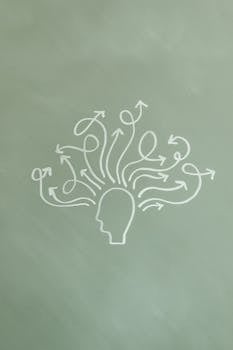Understanding Psychosis: A Compassionate Guide
Keywords: Psychosis, mental illness, schizophrenia, bipolar disorder, hallucinations, delusions, symptoms, treatment, recovery, support, mental health, awareness
Psychosis is a frightening and often misunderstood mental health condition. It's characterized by a disconnection from reality, leading to experiences that differ significantly from those of most people. While often associated with severe mental illnesses like schizophrenia and bipolar disorder, psychosis itself isn't a diagnosis but rather a symptom cluster. This means various conditions can cause psychotic episodes. Understanding this crucial distinction is the first step toward fostering empathy and support for those affected.
What are the hallmarks of Psychosis?
The core features of psychosis revolve around alterations in perception, thought, and emotion. These manifestations can vary widely in intensity and presentation from person to person.
- Hallucinations: These are sensory experiences that occur without an external stimulus. They can affect any sense – sight, hearing, smell, taste, or touch. Auditory hallucinations (hearing voices) are particularly common in psychosis. The content of these hallucinations can range from benign to terrifying, significantly impacting a person's sense of well-being and safety.
- Delusions: These are fixed, false beliefs that are resistant to reason or evidence. Delusions can be persecutory (believing others are plotting against them), grandiose (believing one possesses extraordinary abilities or importance), or referential (believing that everyday events have special meaning directed at them). These beliefs can deeply affect an individual's behavior and decision-making, sometimes leading to dangerous situations.
- Disorganized Thinking and Speech: Psychosis can disrupt the flow of thought, leading to disorganized speech. This might involve rambling, tangential conversations, or the creation of neologisms (made-up words). Understanding what someone experiencing disorganized thinking is trying to communicate can be challenging, but patience and attentive listening are crucial.
- Negative Symptoms: In addition to the positive symptoms (hallucinations and delusions), psychosis can also involve negative symptoms, which represent a decrease or absence of normal functions. These can include flattened affect (reduced emotional expression), alogia (poverty of speech), avolition (lack of motivation), and social withdrawal. These symptoms can be particularly debilitating and contribute significantly to difficulties in daily life.
- Genetics: A family history of psychosis increases the risk, suggesting a genetic predisposition.
- Brain Structure and Function: Neuroimaging studies have identified structural and functional abnormalities in the brains of individuals experiencing psychosis.
- Neurotransmitters: Imbalances in brain chemicals, particularly dopamine, are implicated in the development of psychotic symptoms.
- Environmental Factors: Stressful life events, trauma, and substance abuse can trigger or exacerbate psychotic episodes.
- Medication: Antipsychotic medications are the cornerstone of treatment, helping to reduce the severity of hallucinations, delusions, and other positive symptoms. These medications work by affecting neurotransmitter levels in the brain.
- Psychotherapy: Different types of therapy can be beneficial, including cognitive behavioral therapy (CBT), which helps individuals identify and change negative thought patterns, and family-based therapy, which supports the family in understanding and managing the illness.
- Social Support: A strong support system, including family, friends, and support groups, is crucial for recovery. Connecting with others who understand the challenges of living with psychosis can provide invaluable emotional support and practical advice.
What Causes Psychosis?
The exact causes of psychosis are complex and not fully understood. However, several factors are believed to play a role:
Treatment and Recovery from Psychosis
Fortunately, effective treatments are available for psychosis. The primary approaches include:
Beyond the Symptoms: The Human Experience
It's essential to remember that psychosis is a condition that affects individuals, not just their brains. Behind the symptoms lies a person with hopes, dreams, fears, and a unique personality. Labeling someone solely as "psychotic" dehumanizes them and ignores the complexity of their experience. Empathy, understanding, and a focus on recovery are vital for fostering a supportive environment.
Seeking Help and Support
If you or someone you know is experiencing symptoms of psychosis, seeking professional help immediately is crucial. Early intervention can significantly improve the prognosis and quality of life. Do not hesitate to contact a mental health professional, a doctor, or a crisis hotline. Remember, recovery is possible, and with the right support, individuals can lead fulfilling and meaningful lives. The journey may be challenging, but it's a journey worth undertaking with compassion and understanding.

